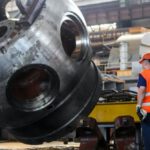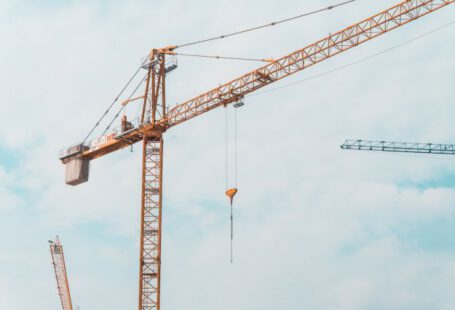Masonry grinders are an essential tool for any masonry project. Whether you’re cutting, grinding, or polishing, these power tools are the go-to choice for DIYers and professionals alike. But with so many different models, features, and accessories available, choosing the right masonry grinder can be a daunting task. This comprehensive guide will help you find the perfect masonry grinder for your next project.
What is a Masonry Grinder?
A masonry grinder is a power tool used to cut, grind, or polish various types of masonry materials, such as stone, brick, concrete, and other construction materials. They are typically equipped with diamond-tipped blades, which are designed to cut through tough materials with ease. Masonry grinders are available in handheld and bench models, and come in a variety of sizes and styles.
Types of Masonry Grinders
Masonry grinders come in a few different types, each with its own set of features and benefits. Handheld grinders are the most common type of masonry grinder, and are perfect for small projects like cutting tile, grinding mortar, and polishing concrete surfaces. These grinders are lightweight and easy to maneuver, making them ideal for DIYers and professionals alike.
Bench grinders, on the other hand, are specifically designed for larger projects. They are larger and heavier than handheld models, and feature powerful motors that can tackle tough materials. Bench grinders are most often used for cutting stone, grinding brick, and polishing large concrete surfaces.
Features to Look For
When shopping for a masonry grinder, there are a few important features to consider. First, consider the size and weight of the grinder. If you’re planning on using the grinder for extended periods of time, it’s important to find one that’s lightweight and easy to maneuver.
Next, think about the power and speed of the grinder. Most masonry grinders come with adjustable speed settings, so you can adjust the speed to match the material you’re working with. You’ll also want to consider the type of motor the grinder is equipped with. Brushless motors are generally more powerful and longer-lasting, while brushed motors are typically less expensive but require more maintenance.
Lastly, consider the type of blade the grinder is equipped with. Masonry grinders typically feature diamond-tipped blades, which are designed to cut through tough materials with ease. The size and type of blade can vary, so make sure to purchase a blade that’s appropriate for the material you’re working with.
Safety Considerations
When using a masonry grinder, safety is of the utmost importance. Make sure to always wear proper safety gear, including safety glasses, gloves, and a dust mask. Additionally, make sure to follow the manufacturer’s instructions and safety guidelines when using the grinder.
When working with masonry materials, it’s also important to keep in mind that they can contain harmful substances, such as silica or asbestos. If you suspect that your material contains hazardous materials, it’s important to take the appropriate safety precautions.
Accessories and Extras
In addition to the grinder itself, there are several accessories and extras that can be purchased to make your masonry projects even easier. Grinder stands are a great accessory for larger projects, as they provide a stable surface to work on and also help to reduce vibration. Dust collection bags or vacuums can also be attached to your grinder to help keep your workspace clean and dust-free.
Conclusion
Masonry grinders are an essential tool for any masonry project. With so many different models, features, and accessories available, it’s important to take the time to find the perfect masonry grinder for your next project. Consider the size, power, speed, and blades, as well as any safety considerations, when choosing the right masonry grinder for your needs. Additionally, don’t forget to consider any accessories or extras that may be needed to help make your project even easier.






